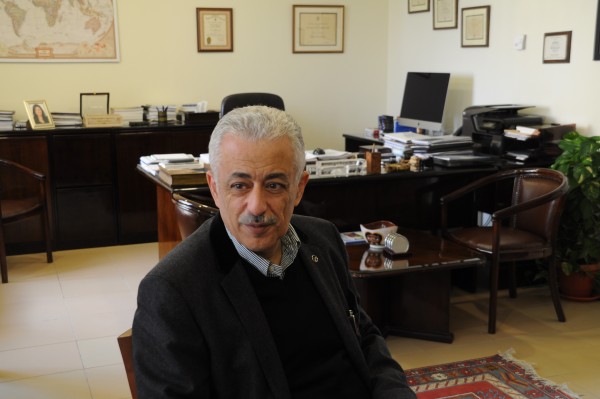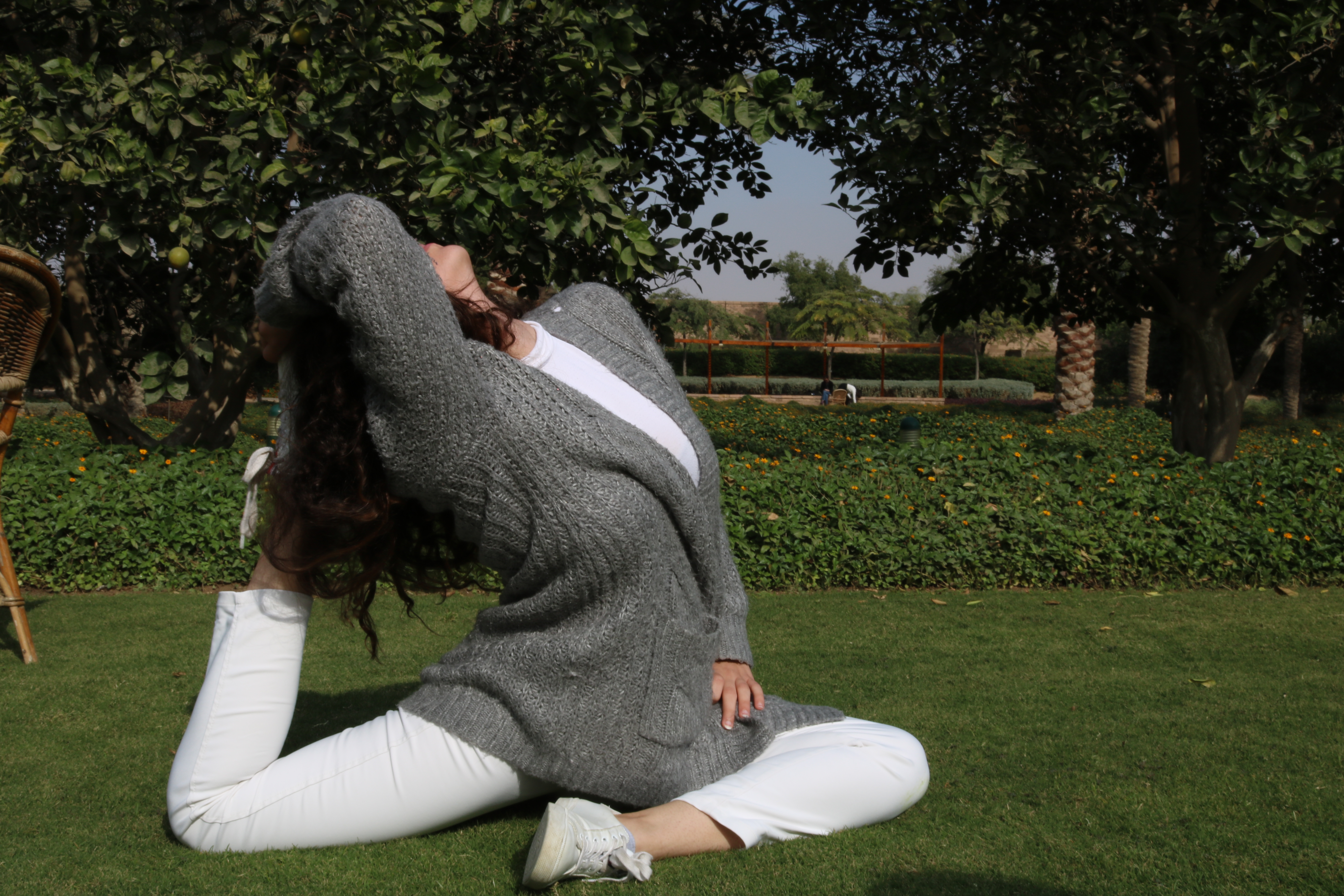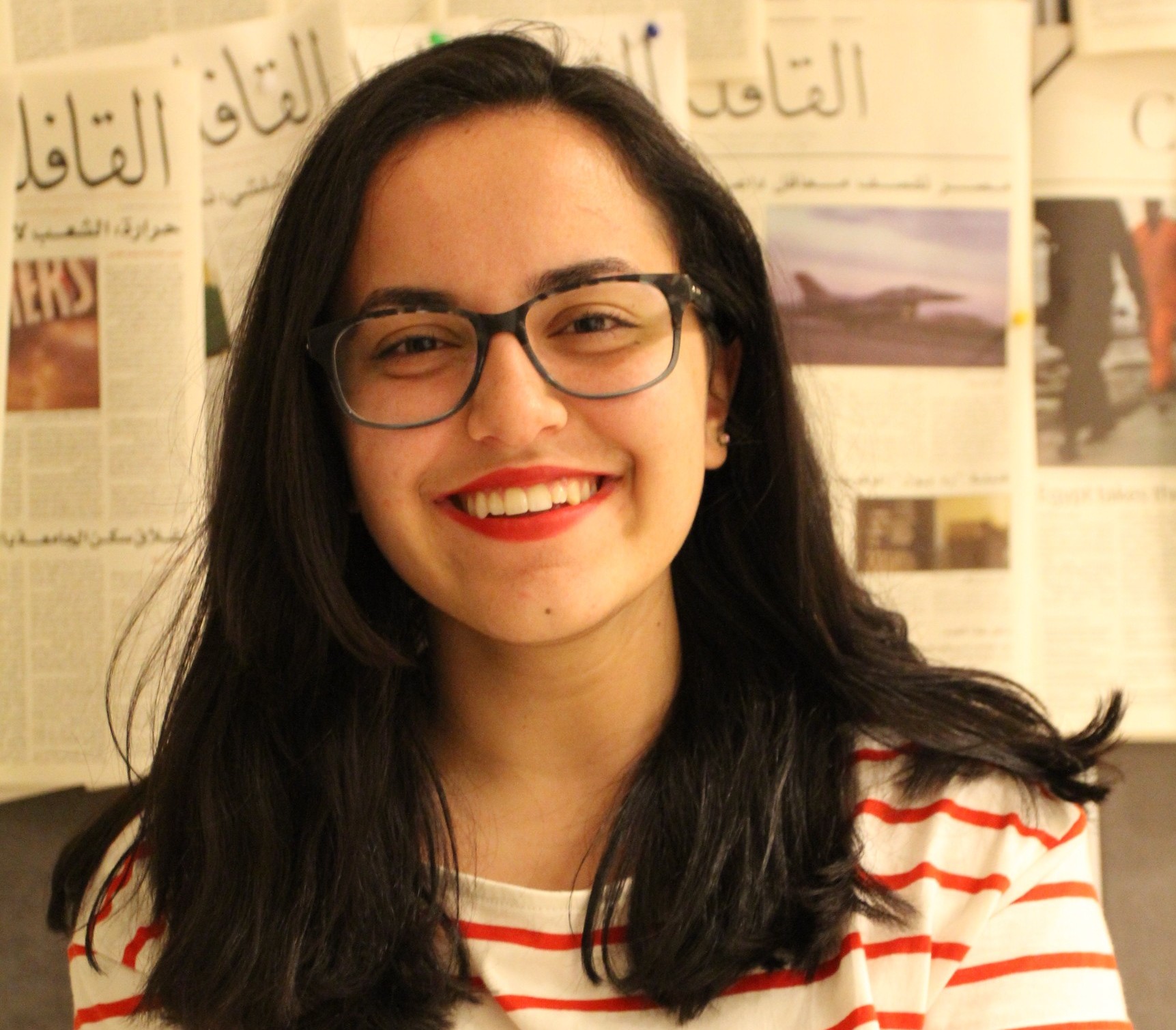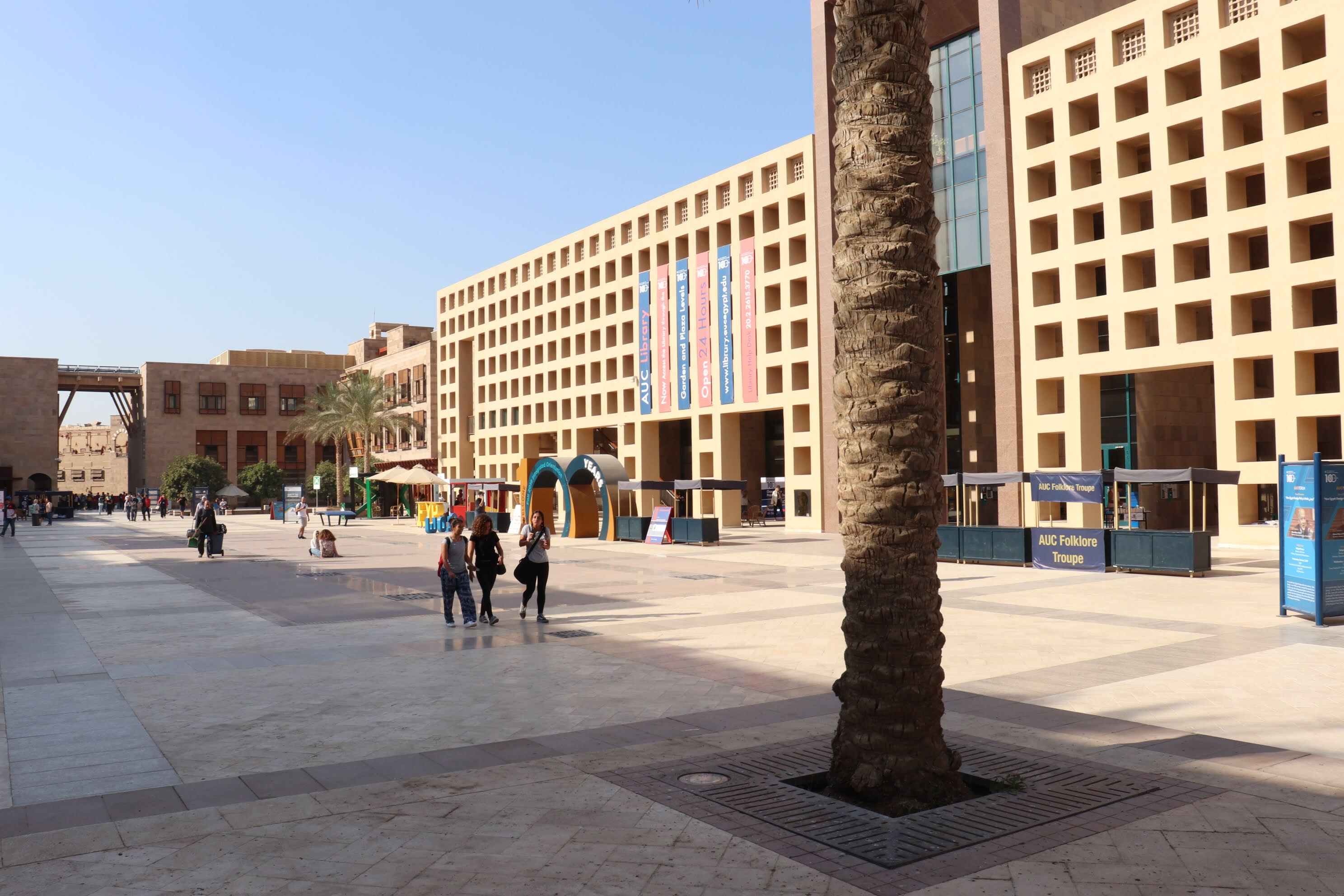Destined to Travel and Impart Education, Science Dean Feels at home in AUC
BY NAHLA EL-GENDY

fast-moving train, “if we don’t jump on
it, we’ll be left in the dust.”
The honor of being selected by the Sultan of Brunei to be one of his academic advisors for Education Reform is like a drop in the bucket of achievements for Tarek Shawki, the Dean of Sciences and Engineering.
It all started 10 years ago, while working for the United Nations Educational, Scientific and Cultural Organization (UNESCO), when he started to work on the ICT Competency Framework for Teachers (CFT), which defines the skill set teachers may need to properly use technology in teaching.
“It is always a pleasant surprise when I realize that in certain countries, like Mexico and Brunei, they depend on the CFT to train their teachers to use technology,” said Shawki.
He was then approached by a consulting firm in London called Imagine Education contracted by the Sultan of Brunei to be the “celebrity of CFT” in Brunei.
Traveling to far-off places was nothing new to Shawki who told the Caravan that he had an interesting childhood living between Germany, Syria and Egypt because of his father’s employment.
But it was back to dear old Cairo in the early 1970s; he received his B.Sc in Mechanical Engineering from Cairo University in 1974, where he was ranked first.
In 1981, Shawki received a fellowship from Rhode Island’s Brown University – among the oldest ten universities in the world.
There he completed three degrees; Ph.D and an M.Sc in Engineering, and an M.Sc in Applied Mathematics. Afterwards, Shawki was offered by one of his thesis examiners, to work at Massachusetts Institute of Technology (MIT) – his first paid job – where he spent a year as a post-Doc.
Shawki was determined to apply as an assistant professor at the University of Illinois at Urbana-Champaign, one of the top engineering schools in the world.
He succeeded and spent 10 years (1986-1996) as a researcher and professor of Theoretical and Applied Mechanics. In 1992, Shawki became an associate professor at the University of Illinois.
“I really enjoyed my time in Illinois; I was teaching, writing my books and enjoying the tiny technology available at that time,” said Shawki.
His decision to leave the United States at that time, after 18 whole years and return to Egypt was an extremely tough one.
“I just left everything behind; my house, my cars, university – everything,” said Shawki.
In 1996, Shawki started using E-learning platforms, which he considers “democratization of knowledge”, to teach a graduate course in Illinois from Egypt via the Internet.
“That’s why I am considered to be the first to use the E-Learning system in Egypt,” he said.
Subsequently, Shawki was offered a job as the regional advisor for communication and information in U N E S C O .
He was the architect behind the emerging UNESCO framework for ICT Competencies of Teachers besides being directly responsible for a number of national, regional and global UNESCO projects in the fields of ICTs, Education, Science and Culture.
Among these projects were establishing the advanced IT system at the Library of Alexandria as well as an online museum. He also established a virtual Syrian University online.
“In UNESCO, our main customers are the governments, which is completely different than academic life,” said Shawki.
In 2005, Shawki became the Global Chief of ICTs in Education, Science and Culture within the Information Society Division at UNESCO headquarters in Paris.
It was all about reeducating teachers.
“It is funny how I started with Mechanical Engineering in my B.Sc specialized in Applied Mathematics at Brown University, zoomed in to Theoretical and Applied Mechanics in the University of Illinois then worked in communication and Information at the UNESCO, which has nothing to do with Engineering,” said Shawki.
Shawki’s leadership is considered paramount to the Arab region in modernizing university education in basic and engineering sciences, through the promotion of the Mathematica technology. Mathematica Technology is the new mathematical software that has been lately introduced to AUC with 3000 free licenses.
But Shawki lamented that Egypt lags behind in competitive sciences.
“Despite spending more than half of my age living in different countries, Egypt has always been my home. However, we are not really competitive in terms of sciences; we still have a long way to go.”
“It is disappointing how Egyptians don’t even use logic or critical thinking in their daily lives, it’s not just the literacy in reading and writing that matters.”
In his opinion, the biggest problems in Egypt are the corruption and the lack of professional ethics everywhere, whether hidden or disclosed.
Shawki believes that technology is a fast-moving train, “if we don’t jump on it, we’ll be left in the dust.”
But don’t mistake him for an adult version of a science geek.
Shawki is quite the music aficionado, collecting all types of music for his private library.
He says, “I have the taste for beauty, anything that is beautiful just attracts me.”
But when it comes to relaxing and perhaps stealing a few hours to watch a movie, it’s The Hobbit – a fantasy film based on JRR Tolkien’s 1930 novels – that takes his fancy.
Editor’s Note: In our interview, Shawki revealed that his favorite coffee on campus is from TBS.




